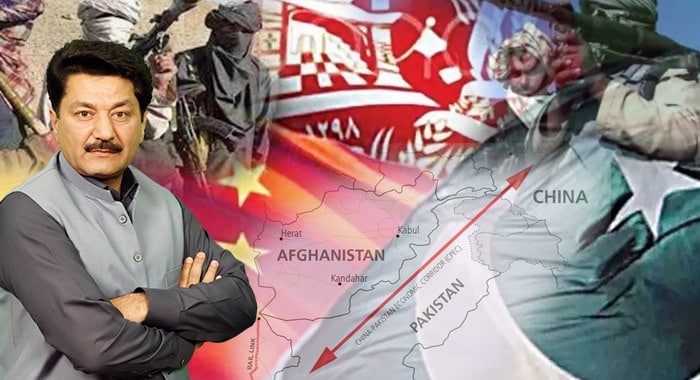A visible improvement in relations between Pakistan and Afghanistan has rekindled hope in a region historically fractured by militancy, mistrust, and manipulation. High-level meetings in Kabul, Islamabad, and Beijing have signalled diplomatic re-engagement. Trade routes are reopening. And for the first time in many months, the spectre of open conflict between the two neighbours has slightly dimmed.
But let us not mistake temporary calm for lasting peace. The ground realities, especially the presence of TTP and other terrorist factions in Afghanistan, the fragile socio-political climate in Pakistan’s border regions, and the uncertain direction of military operations, remain serious obstacles. True peace demands not only diplomacy between capitals, but trust with communities, and above all, a total rejection of armed militancy.
The trilateral cooperation among China, Pakistan, and the Afghan Taliban is a pragmatic response to shared economic and security challenges. The Taliban government, still unrecognised internationally and deeply reliant on aid and trade, realises that China and Pakistan remain its most viable partners. China’s special representatives have held back-to-back meetings with Pakistani and Afghan counterparts—first in Kabul, then in Beijing. These weren’t ceremonial gatherings. They were substantive, strategic, and deeply consequential.
Afghanistan needs capital and development. China offers global investment muscle, and Pakistan offers regional access and diplomatic cover. But both require one non-negotiable condition: security. Without peace, there can be no CPEC expansion, no infrastructure building, no trade corridors.
Pakistan has long drawn a red line: The Afghan Taliban must choose between harbouring the TTP and building lasting relations with Pakistan. It is encouraging that messages from Kabul, including from Supreme Leader Sheikh Hibatullah Akhundzada, now stress that fighting outside Afghanistan is not jihad. These words matter.
However, words alone are insufficient. Evidence has been shared with Afghan authorities: not only are TTP militants operating from Afghan soil, but Afghan nationals are also participating in attacks within Pakistan. This development shocked even the Taliban’s leadership, suggesting they may not fully control what occurs within their borders.
The Taliban must act decisively: shut down militant safe havens, disarm foreign fighters, and hand over wanted terrorists. This is not just about honouring bilateral commitments—it’s about safeguarding their own sovereignty. No country in the region will support Afghanistan’s development if it becomes a breeding ground for cross-border terrorism.
On Pakistan’s side, the launch of Azm-e-Istehkam, a renewed national counter-terrorism initiative, is a sign of resolve. Operations are underway in Khyber Pakhtunkhwa, tribal areas, and sensitive parts of Balochistan, specifically targeting TTP sleeper cells and banned outfits.
But let us be honest: military action alone has not been, and cannot be, a complete solution.
From Operation Rah-e-Rast to Zarb-e-Azb to Radd-ul-Fasaad, Pakistan has seen wave after wave of military campaigns. Yes, they dismantled networks. Yes, they restored state writ in parts of FATA and Balochistan. But they also displaced millions, traumatised entire generations, and left a vacuum of political engagement and trust. We must ask: Did these operations eliminate extremism or simply scatter it?
The answer lies in the faces of the thousands who marched under white flags for peace in Swat, Waziristan, and Bajaur. People want peace, but they do not want cohabitation with militants, nor another cycle of migration, curfews, and military checkpoints. No operation will succeed without the confidence and inclusion of local communities and their political representatives.
There are divergent opinions within Pakistan’s political circles. Some advocate dialogue with militants. Others see this as appeasement. The reality is: we’ve tried both.
Peace agreements with commanders like Naik Muhammad, Hafiz Gul Bahadur, and Mullah Nazir yielded short-term calm—but long-term chaos. Militants regrouped, rearmed, and returned. Even when some prisoners were released as goodwill gestures, trust was never reciprocated. Today, we hear claims of 40,000 TTP fighters. Whether exaggerated or not, the threat is real, and dialogue without disarmament will be suicidal.
Globally, we are seeing subtle shifts. China, already entrenched in Afghan affairs, has its ambassador in Kabul and recognises the Taliban de facto, if not de jure. Russia, Qatar, and the UAE also maintain full diplomatic channels. Saudi Arabia’s ambassador is in Kabul. Even the U.S., though officially aloof, monitors developments in Afghanistan through the lens of China’s growing influence.
Meanwhile, Pakistan’s position has been clear: whether or not one agrees with the Taliban’s ideology or policies, they are now the reality of governance in Afghanistan. And ignoring that reality won’t help regional stability. Engagement is necessary, but conditional. Support cannot come at the cost of Pakistan’s security.
Beneath all the geopolitics lies a simpler truth: no foreign investment can enter an insecure region. Gold in Balochistan, rare minerals in Khyber Pakhtunkhwa, road corridors through tribal areas, these are all meaningless if engineers can’t work, schools can’t reopen, and businesses can’t thrive.
Afghanistan, Pakistan, and China all want the same thing: development. But without human security, there is no economic security. And without education, employment, and community trust, no counter-terror strategy will endure.
Those still clinging to the illusion of “jihad” within Pakistan need to face facts: your fight is no longer noble, if it ever was. When your actions kill schoolchildren, bomb marketplaces, and destroy the livelihoods of Muslims, you are not Mujahideen. You are Khawarij.
And to those regional actors quietly enabling or tolerating these groups: You are betting on chaos in a region that cannot afford another war. The Afghan Taliban, by forbidding cross-border jihad, have taken a small but critical step. Now they must enforce it.
A rare window is opening. Pakistan and Afghanistan have resumed dialogue. China is investing. The world is watching. But this window will not stay open forever.
If the Afghan Taliban want legitimacy, if Pakistan wants security, and if the region wants prosperity, we must reject militancy unequivocally, invest in people, and involve communities in shaping their own futures.
The alternative is one we have already seen: a cycle of violence, displacement, and lost generations. We must not go back.





